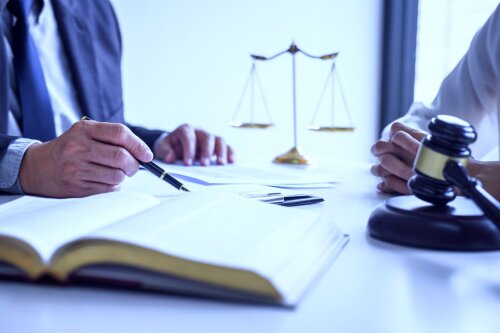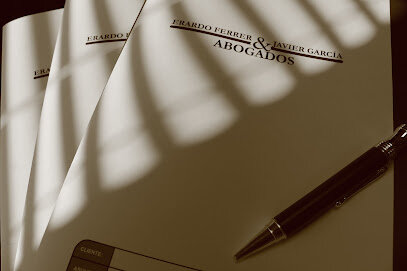Best Due Diligence Lawyers in Spain
Share your needs with us, get contacted by law firms.
Free. Takes 2 min.
Or refine your search by selecting a city:
List of the best lawyers in Spain
About Due Diligence Law in Spain
Due diligence in Spain involves a comprehensive evaluation or investigation of a business or organization before entering into a contract or financial transaction. It primarily focuses on identifying potential risks and liabilities that may not be immediately apparent. Spanish due diligence law covers a variety of legal areas, including corporate law, financial records, intellectual property, and compliance with environmental regulations. It's a critical process in mergers and acquisitions, real estate transactions, and partnerships to ensure informed decision-making and safeguard investments.
Why You May Need a Lawyer
There are several scenarios in which a person or a business may require legal assistance in due diligence. These include:
- Mergers and Acquisitions: Legal professionals can help ensure that all pertinent financial, legal, and operational aspects of a target company are vetted accurately.
- Real Estate Transactions: Lawyers can examine property titles, zoning laws, and potential legal encumbrances.
- Investment Analysis: For investors, due diligence is crucial in assessing the viability and risk of a business investment.
- Regulatory Compliance: Ensuring that businesses comply with Spanish regulations and mitigate legal risks.
- Contractual Obligations: Lawyers can assess and safeguard contractual duties and rights to prevent future disputes.
Local Laws Overview
The key aspects of local Spanish laws relevant to due diligence include:
- Corporate Law: Due diligence involves assessing corporate governance, validating company structures, and understanding statutory compliance regulations.
- Financial Regulations: Examining financial statements, ensuring audit compliance, and identifying undisclosed liabilities.
- Data Protection Law: Compliance with the General Data Protection Regulation (GDPR) is crucial for handling any personal data during the due diligence process.
- Environmental Regulations: Particularly relevant for industrial and agricultural sectors, where compliance with environmental laws is assessed.
- Taxation Compliance: Verification of a company's tax filings and liabilities according to Spanish tax laws is critical.
Frequently Asked Questions
What is the purpose of due diligence?
Due diligence aims to provide an in-depth understanding of all potential risks involved in a business transaction. It evaluates financial health, legal obligations, operational status, and compliance with regulations.
Who typically conducts due diligence?
Due diligence is usually carried out by legal professionals, financial analysts, and subject matter experts relevant to the sector in question.
How long does the due diligence process take in Spain?
The duration of the due diligence process varies depending on the transaction's complexity. However, it typically ranges from a few weeks to several months for extensive evaluations.
What are the costs associated with due diligence?
Costs can vary widely based on the scope and depth of the investigation, the complexity of the transaction, and the fees of professionals involved.
Is due diligence a legal requirement in Spain?
While not always a legal requirement, due diligence is a standard practice for risk mitigation and informed decision-making in business transactions.
Can due diligence prevent all risks?
No, but it significantly reduces the likelihood of unforeseen issues by identifying and assessing potential risks.
What documents are required for due diligence?
Common documents include financial statements, corporate records, legal agreements, tax filings, compliance certificates, and property titles.
What happens if discrepancies are found during due diligence?
Depending on the nature and severity, parties may renegotiate terms, request indemnifications, or in some cases, withdraw from the transaction.
Can due diligence be outsourced?
Yes, many companies outsource due diligence to legal and financial firms with expertise in specific industries or markets.
What are the main areas covered in due diligence?
The main areas include financial, legal, operational, tax, environmental, and information technology aspects of the target entity.
Additional Resources
For further resources on due diligence in Spain, the following could be helpful:
- Spanish Chamber of Commerce provides resources and support for businesses.
- ICEX Spain Trade and Investment offers guides and expert services for international investments.
- The General Council of Spanish Lawyers (CGAE) provides directories to find legal professionals specialized in due diligence.
Next Steps
If you need legal assistance in due diligence, consider the following steps:
- Identify and consult with a lawyer or professional firm specializing in the relevant area of due diligence.
- Prepare and organize all necessary documents and information about your business or the transaction.
- Discuss your specific needs, expectations, and budget with the chosen legal counsel.
- Ensure ongoing communication with your legal team to remain updated on the progress and findings of the due diligence process.
- Consider reviewing findings with industry experts to gain varied perspectives on the identified risks and opportunities.
Lawzana helps you find the best lawyers and law firms in Spain through a curated and pre-screened list of qualified legal professionals. Our platform offers rankings and detailed profiles of attorneys and law firms, allowing you to compare based on practice areas, including Due Diligence, experience, and client feedback.
Each profile includes a description of the firm's areas of practice, client reviews, team members and partners, year of establishment, spoken languages, office locations, contact information, social media presence, and any published articles or resources. Most firms on our platform speak English and are experienced in both local and international legal matters.
Get a quote from top-rated law firms in Spain — quickly, securely, and without unnecessary hassle.
Disclaimer:
The information provided on this page is for general informational purposes only and does not constitute legal advice. While we strive to ensure the accuracy and relevance of the content, legal information may change over time, and interpretations of the law can vary. You should always consult with a qualified legal professional for advice specific to your situation.
We disclaim all liability for actions taken or not taken based on the content of this page. If you believe any information is incorrect or outdated, please contact us, and we will review and update it where appropriate.
Browse due diligence law firms by city in Spain
Refine your search by selecting a city.















